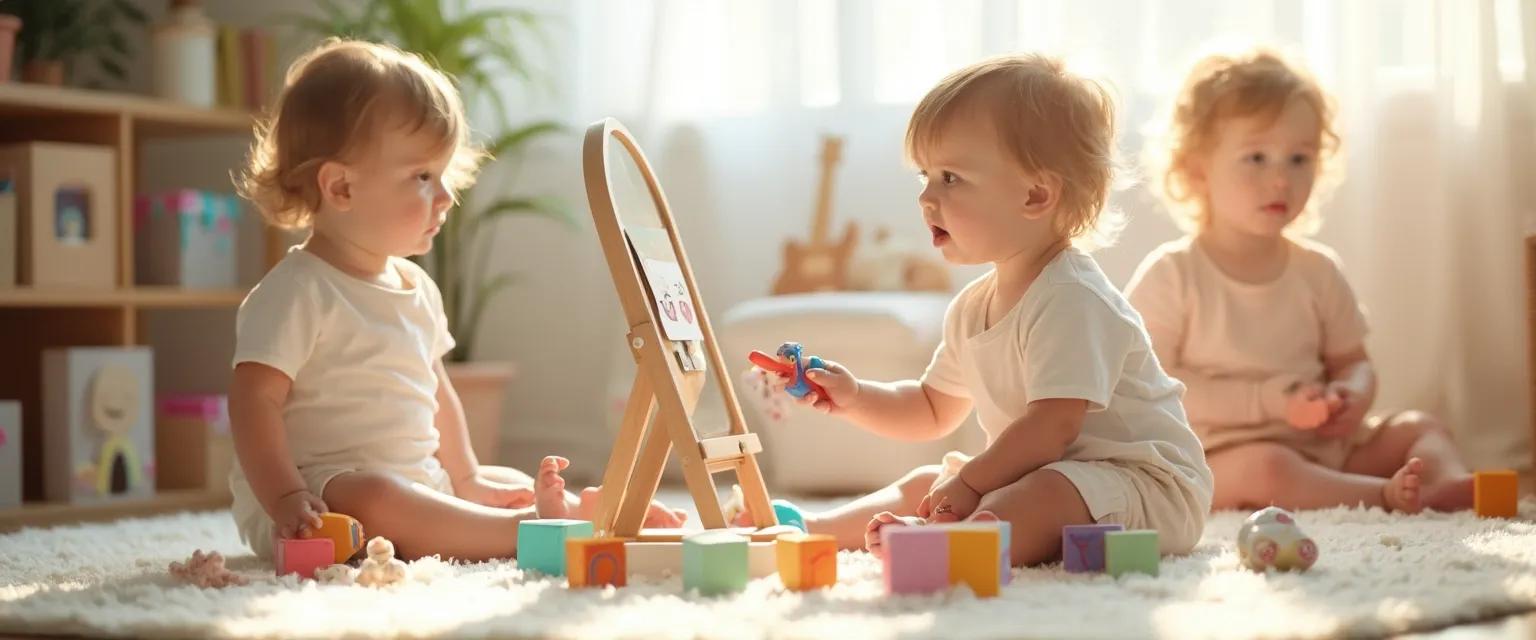7 Playful Games That Build Self-Awareness in Early Childhood Development
Watching your little one develop self-awareness is one of parenting's most fascinating journeys. Those magical moments when they recognize themselves in the mirror or express their preferences mark crucial milestones in their cognitive development. Self-awareness in early childhood forms the foundation for emotional intelligence, social skills, and a healthy sense of identity. But how exactly do we nurture this essential skill in our busy toddlers who seem perpetually in motion?
The answer lies in play—that universal language of childhood. When toddlers engage in playful activities, they're not just having fun; they're building neural pathways that support their understanding of self. These parenting confidence techniques through games create a low-pressure environment where self-awareness can flourish naturally. The science is clear: play-based learning activates multiple brain regions simultaneously, making it particularly effective for developing emotional intelligence in these formative years.
The following seven games are specifically designed to enhance self-awareness in early childhood while keeping your toddler engaged and entertained. Each activity builds different aspects of self-recognition, emotional awareness, and bodily understanding—all crucial components of how children develop their sense of self.
Mirror and Recognition Games for Self-Awareness in Early Childhood
Mirror play stands as the cornerstone of self-awareness in early childhood development. When your toddler gazes at their reflection, they're processing complex information about their physical existence. Try the "Mirror Faces" game—make different expressions together and name each emotion: "Look, we're happy!" or "Now we're surprised!" This simple activity helps toddlers connect internal feelings with external expressions.
The classic "Where's Your Nose?" game takes body awareness to the next level. Start by pointing to and naming parts of your toddler's body, then gradually transition to asking them to point to different body parts themselves. This builds bodily awareness while reinforcing vocabulary. For added fun, try the "Sticker Identity" game—place colorful stickers on visible body parts and encourage your toddler to remove them while naming each part.
Emotion-matching activities further enhance self-awareness in early childhood by helping toddlers recognize and categorize feelings. Create simple emotion cards with basic expressions (happy, sad, angry, surprised) and play a matching game. When they successfully match emotions, ask, "Do you ever feel happy/sad?" This connects the visual recognition with their personal emotional experiences, strengthening neural pathways for emotional intelligence development.
Interactive Self-Awareness in Early Childhood Activities
Toddler-friendly versions of "Simon Says" create engaging opportunities for body awareness practice. Use simple, clear instructions: "Simon says touch your tummy" or "Simon says wiggle your fingers." This game combines listening skills with bodily awareness, reinforcing the connection between verbal commands and physical responses—a key component of self-awareness in early childhood.
Music and movement games create powerful connections between emotions and physical sensations. Try "Dance Your Feelings"—play different music styles and encourage your toddler to move according to how the music makes them feel. Fast, upbeat songs might inspire jumping or spinning, while slower melodies might prompt gentle swaying. This family dynamics activity helps children recognize how emotions manifest physically.
Simple preference games like "I Choose" support decision-making skills. Offer two options (toys, snacks, or activities) and ask your toddler to select one. After they choose, emphasize their agency: "You chose the red block!" These moments of decision-making help toddlers recognize themselves as individuals with unique preferences, a fundamental aspect of self-awareness in early childhood.
Nurturing Self-Awareness in Early Childhood Through Daily Play
The true power of these games emerges when incorporated into daily routines. Bath time becomes an opportunity for body-part naming, while getting dressed offers perfect moments for choice-making. Look for signs of growing self-awareness: using "I" or "me" appropriately, recognizing themselves in photos, or expressing clear preferences.
The benefits of developing self-awareness in early childhood extend far beyond the toddler years. Children with strong self-awareness typically demonstrate better emotional intelligence skills and social adaptability as they grow. To continue supporting this development, maintain a consistent environment where your toddler feels safe expressing preferences and emotions while gradually introducing more complex self-awareness activities as they mature.
By incorporating these playful approaches to self-awareness in early childhood, you're not just entertaining your toddler—you're helping them build the essential foundation for understanding themselves and others in ways that will benefit them throughout life.




